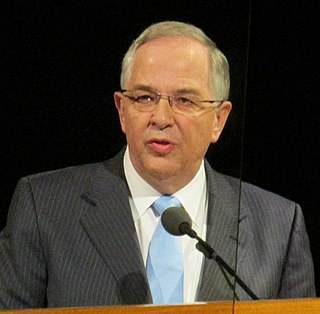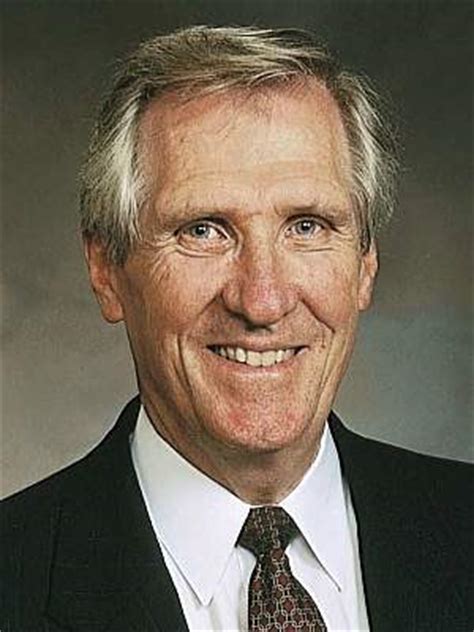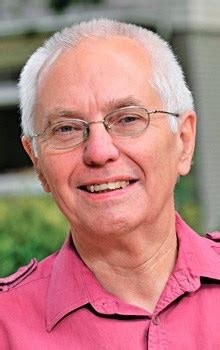A Quote by Neal A. Maxwell
Thus it is that our faith and trust in our Heavenly Father, so far as this mortal experience is concerned, consists not simply of faith and gladness that He exists, but is also a faith and trust that, if we are humble, He will tutor us, aiding our acquisition of needed attributes and experiences while we are in mortality. We trust not only the Designer but also His design of life itself, including our portion thereof!
Related Quotes
To be "in Christ" is to place one's trust in Him for salvation from sin. To be "in Christ" is to trust His goodness, not our own; to trust that His sacrificial death on the cross paid the complete debt of death we owe for our sin; to trust that His resurrection gives us eternal life instead of relying upon our own ability to please God. To be "in Christ" is to claim, by faith, the free gift of salvation. To be "in Christ" is to enjoy a completely restored relationship with our Father in heaven by virtue of His Son's righteous standing.
In order to trust God, we must always view our adverse circumstances through the eyes of faith, not of sense. And just as the faith of salvation comes through hearing the message of the gospel (Romans 10:17), so the faith to trust God in adversity comes through the Word of God alone. It is only in the Scriptures that we find an adequate view of God's relationship to and involvement in our painful circumstances. It is only from the Scriptures, applied to our hearts by the Holy Spirit, that we receive the grace to trust God in adversity.
Faith is the surrender of the mind; it's the surrender of reason, it's the surrender of the only thing that makes us different from other mammals. It's our need to believe, and to surrender our skepticism and our reason, our yearning to discard that and put all our trust or faith in someone or something, that is the sinister thing to me. Of all the supposed virtues, faith must be the most overrated.
We have to trust the Lord God for so many things, and it is but one thing more to trust him in the issues of life and death, and to accept the fact that his plans and promises and purposes transcend the bounds of this world and of this life. With such faith the years are kind, and peace and reconciliation do come to those who have laid to rest their loved ones - who, even in death, are not far removed from us, and of whom our Father in heaven will be mindful until we meet again even as we are mindful of our own children.
This is our Lord’s will, that our prayer and our trust be both alike large. For if we trust not as much as we pray, we do not full worship to our Lord in our prayer, and also we tarry and pain our self. The cause is, as I believe, that we know not truly that our Lord is Ground on whom our prayer springeth; and also that we know not that it is given us by the grace of His love. For if we knew this, it would make us to trust to have, of our Lord’s gift, all that we desire. For I am sure that no man asketh mercy and grace with true meaning, but if mercy and grace be first given to him.
The gift of faith is a priceless spiritual endowment... Our faith is centered in God our Father, and Jesus Christ, our Savior and Redeemer. It is bolstered by our knowledge that the fullness of the gospel has been restored to the earth; that the Book of Mormon is the word of God; and that prophets and apostles today hold the keys of the priesthood. We treasure our faith, work to strengthen our faith, pray for increased faith, and do all within our power to protect and defend our faith.
Why should we be willing to go by faith? We do all things in this world by faith in the word of others. By faith only we know our position in the world, our circumstances, our rights and privileges, our fortunes, our parents, our brothers and sisters, our age, our mortality. Why should Religion be an exception?






































